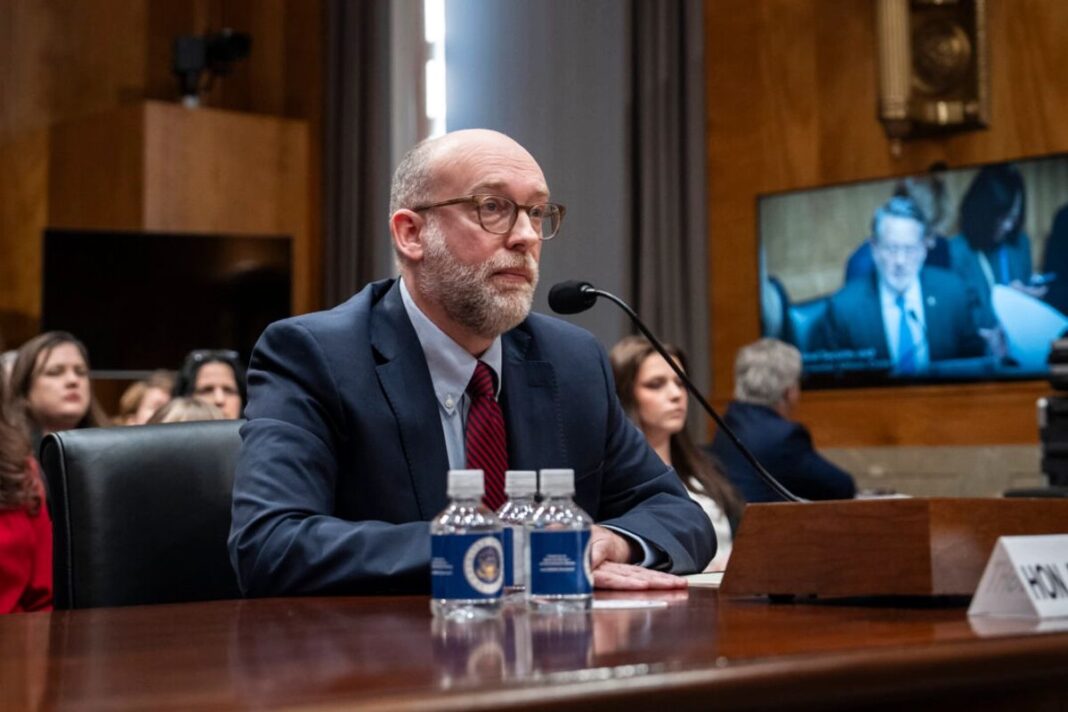The decision gives Vought greater leverage to keep subordinates on track who would otherwise slow-walk or block policies at the department and agency levels.
WASHINGTON—Office of Management and Budget (OMB) Director Russell T. Vought—the Trump administration’s top official in charge of guiding the federal bureaucracy’s day-to-day policy work—is transferring spending decision authority to his top political appointees.
“I hereby delegate to the Program Associate Directors (PAD) the authorities delegated by the President to the Director of the Office of Management and Budget for apportioning funds pursuant to 31 U.S.C. §1513,” Vought said in a Feb. 11 memorandum made available to The Epoch Times.
“This delegation supersedes any previous delegation of such authority and will remain in place until revised or revoked. The Program Associate Directors may re-delegate this authority as necessary in writing. This delegation does not limit the authority of the Director to exercise the delegated authority.”
While it may seem like nothing more than moving boxes around on a bureaucratic organization chart, Vought’s decision significantly increases his leverage for keeping subordinate officials on track throughout the federal government who would otherwise slow-walk or block presidential policies at the department and agency levels.
A senior White House official who asked not to be named told The Epoch Times that Vought “is bringing back accountability to OMB to ensure that the POTUS agenda is accomplished and more money doesn’t sneak out the door.”
In addition, the official said, “it’s about ensuring all tools are used to accomplish the president’s agenda, especially when it comes to what we are funding, and in light of agencies and bureaucrats ignoring executive orders.”
The OMB has the largest staff within the Executive Office of the President in the White House and is the central contact point for all federal departments and agencies for receiving, defining, and understanding the day-to-day implementation of presidential policies and decisions.
Created in 1970 by President Richard Nixon, OMB can veto department and agency decisions thought to be contrary to presidential directives. But the vast majority of OMB staffers—including until now the five PADs—have always been career civil servants and will likely continue to be under Vought.









